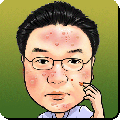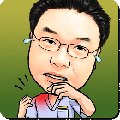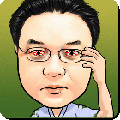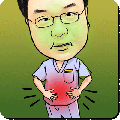Treatment of Skin Conditions with Acupuncture
Acupuncture and Oriental medicine can be very effective at treating skin conditions. Treatments can provide quick relief for acute symptoms and significant and lasting relief from recurrent or chronic skin conditions. The skin reflects and reacts to imbalances within the body’s internal landscape and the effects of the environment. Internal disharmonies caused by strong emotions, diet, and your constitution, as well as environmental influences such as wind, dryness, dampness, and heat, can all contribute to the development of a skin disorder. To keep your skin healthy and beautiful on the outside, you must work on the inside of your body as well. Increasing the flow of energy, blood and lymph circulation improves the skin’s natural healthy color. Promotion of collagen production increases muscle tone and elasticity, helping to firm the skin. Stimulating the formation of body fluids nourishes the skin and encourages it to be moister, softer, smoother and more lustrous. General skin conditions that can be treated with acupuncture and Oriental medicine include acne, dermatitis, eczema, pruritus, psoriasis, rosacea, shingles and urticaria (hives). Oriental medicine does not recognize skin problems as one particular syndrome. Instead, it aims to treat the specific symptoms that are unique to each individual using a variety of techniques with acupuncture, such as herbal medicine, bodywork, lifestyle/dietary recommendations and energetic exercises to restore imbalances found in the body. Therefore, if 10 patients are treated with Oriental medicine for eczema, each patient will receive a unique, customized treatment with different lifestyle and dietary recommendations.
Acupuncture and Acne
People looking for help with acne often try remedy after remedy without much help. For thousands of years, Traditional Chinese Medicine (TCM) practitioners have used acupuncture and individualized herbal formulas to treat acne. That same wisdom can be effectively applied today. Acne is among the most common of skin conditions. It afflicts almost all of the adolescents to some degree, and can extend into adulthood. The degree of severity can vary widely, from a few white heads and blackheads, to extensive formation of cysts. Sometimes scarring can occur. But no matter how bad, acne can have a significant effect on social and emotional health. It can also be the source of physical pain and local skin infections. According to Western medicine, acne is a disorder of the hair follicle sebaceous gland. This gland can get clogged up from a skin, which is normally shed off the body. The clogged pore then becomes a pimple. Hormones and bacteria in the skin further exacerbate the clogging of pores. In some people, the pimple can become inflamed leading to development of large painful pimples, commonly referred to as cysts.
Traditional Oriental Medicine Viewpoint
TCM considers physical, emotional, and environmental factors of the individual when treating skin problems. From a TCM perspective, acne is most often associated with heat and dampness effecting the organs and channels of the lungs, stomach, and spleen. In Chinese medicine, each organ has specific functions and is connected to a channel that runs from the skin’s surface internally to connect with the organ. The organs involved with acne are because of both the function as well as the locations of their channels. Lung – The lung is in charge of the skin. So any skin disease can therefore be related to the lung. We often see this in some skin diseases, such as eczema, which often occurs with lung problems. The lung also regulates the opening and closing of the pores, which is one way that the heat that causes acne can escape from the body. Stomach – The stomach naturally tends to be warm, which is how it helps in digestion of food. However, this propensity for heat can easily gather extra heat, which can manifest as pimples along the stomach channel, which covers the chest and the face. Dampness in the stomach also may be a factor, which leads to greasy oily skin. Spleen – Finally, the spleen is also involved. The spleen is in charge of digestion. When digestion is working well and harmonized the body generates ample amount of energy and is able to get rid of dampness. If the spleen is not working well, dampness can accumulate and lead to greasy skin and acne. These disharmonies have many overlapping causes. Stress, overwork, and congenital factors are some of the most common reasons. Food choices are also a common cause. Eating greasy, spicy, and heavy foods disrupt the function of the spleen in digestion that can lead to dampness, which can influence an acne flare-up. Which is why eating greasy pizza, too much chocolate, and spicy Mexican food can be bad for acne.
TCM Diagnosis and Treatment
By taking the pulse, asking in-depth questions, and observing the tongue and skin, the TCM practitioner will make an individualized diagnose according to TCM patterns. The treatment is tailored to fit to each person’s pattern diagnosis. Depending on the condition, treatment may involve acupuncture, Chinese herbs, or both. Generally, mild acne can be treated with acupuncture, but more severe and complex cases often require Chinese herbs as well. Lung and stomach heat is the most common form of acne. This manifests as white or black heads on the face around the cheeks, nose, and forehead, as well as the chest, and upper back. Skin looks oily and may have a slightly reddish hue. The tongue will have a yellow coat. The goal of this treatment is to clear heat from the lungs and the stomach. Generally, the acupuncture treatment is on the lung and Stomach channels, which go along the arms and legs. Lung 5, at the elbow, is often used, as well as Stomach 36 below the knee. Herbs such as pi pai ye, huang qin, and sang bai pi may be used to clear heat from the lungs and stomach. Sometimes the heat is very strong, leading to dry mouth and thirst. To clear this heat and nourish the fluids of the body, herbs such as xuan shen and mai men dong are added. If there is significant dampness in the stomach, the skin will be more oily and greasy. Often this will lead to large acne and cysts on the chest and back. Herbs such as bai zhu and yi yi ren may be added to clear even more heat. For those with this type of acne, it is very important to avoid greasy foods. The skin around areas of acne may become red causing a general reddish complexion, which may remain after the pimples have been cleared. This is because the heat has entered the blood level. Herbs such as honeysuckle flowers, rose hips, and lotus flowers can be used for this condition. Heat toxicity develops when the skin becomes infected. Toxicity manifests as is redness, pus, and pain. Herbs such as honeysuckle and dandelion may be used for this. In women, if acne becomes worse around the menstrual cycle, it may be related to the qi, the body’s energy, and blood. Qi flows throughout the body’s channels. Emotions such as stress, frustration, and anger can cause the qi to slow down to stagnate. Frequently, acne and other skin problems which occur around the menses are caused by qi and blood stagnation. For this acupuncture points such as Liver 3 on the foot, and Spleen 6 above the ankle may be used. Herbs such as yi mu cao, xiang fu, and bai shao may be added. Chinese Medicine and Acupuncture is a holistic treatment. It can help those with all degrees and types of acne with clearing the skin, as well as improve overall wellness.





